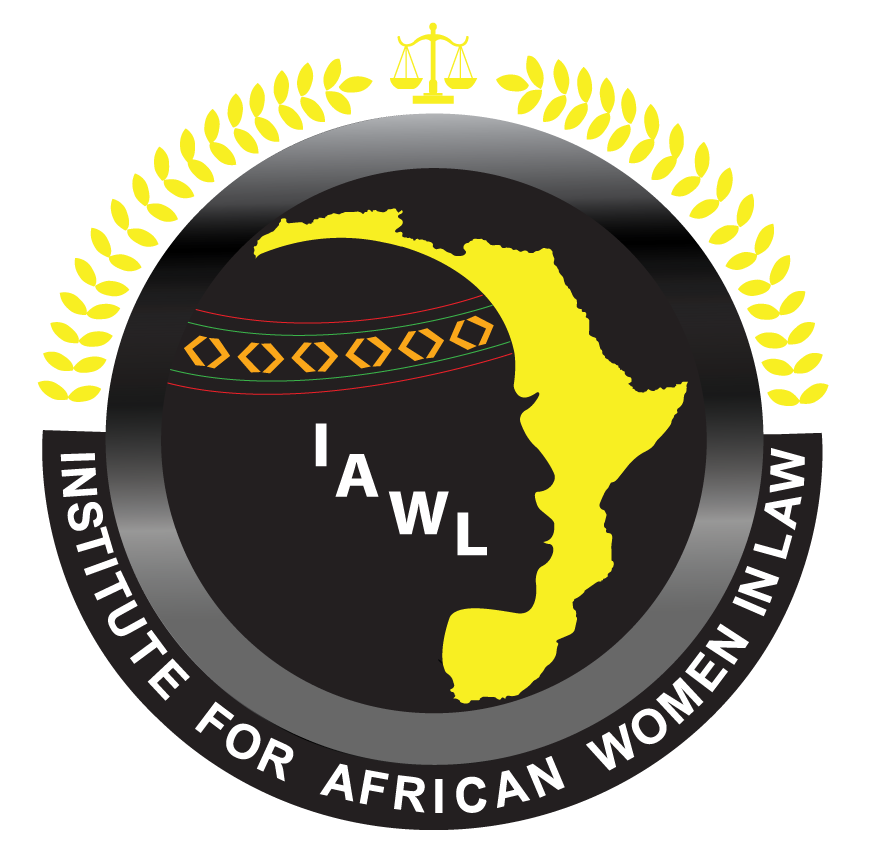Could COVID-19 Change the Face of African Customs and Customary Law?
- IAWL

- Jun 7, 2020
- 4 min read
Updated: Jun 29, 2020
By Beatrice Akua Duncan, Ph.D.

Customs and customary laws impact every facet of life of the African, intersecting each point of the life cycle—from birth, through puberty, marriage, and ultimately death. Customs are lifestyles and practices which are peculiar to communities. Customary law may be defined as the community norms which govern these practices. Building on my Ghanaian identity and research experience as entry points, I highlight some of the potential consequences of the pandemic on the ways of life of African communities as exhibited through customs and institutionalized through customary law and in some cases, statutory law.
COVID-19 has altered social organization across all continents, causing unprecedented disruption to the ways in which people live and work, with governments implementing various degrees of social distancing, lockdowns, and quarantines. These government measures are a nemesis to African customs and customary laws, which are predicated on social organization and social mobilization. Africans had devised their own means of connecting with each other across families, lineages and communities centuries before the internet, social media and other forms of technology.
Social cohesion is achieved through social gatherings of varied sizes, specific objective and execution in a manner that not only gave significance to the occasion, but also the status of the individual or groups concerned. Families and lineages converge to celebrate the birth of a child, puberty, a marital union or mourn the dead. Such events place a requirement on members of these social organizations to participate by being physically present. Admittedly, the practice of polygamy in Africa across the centuries has meant that even nuclear families have tended to be much larger in size in contrast to many other parts of the world. These occasions presented opportunities to exchange conversations about the achievements, well-being and challenges of members of the group. Through these interactions, conflicts and economic hardships of members are sometimes resolved. In the case of customary marriage ceremonies which are largely undocumented, the presence of family and lineage members on the side of each party serves as an invaluable source of evidence that a marriage took place.
While these events across the life cycle remain essential, many of them tend to be marked by ostentation, in some cases revealing underlying class distinctions and inequalities. Parties to marriage and funeral ceremonies can be saddled with debt due to pressure on couples or families to spend above their means. The expectations and requirements of customary marriages in particular, are either delaying marriages or resulting in consensual unions (common law marriages or mpena awaree in Twi, a Ghanaian dialect). Could COVID-19 therefore signal the need to shear off the pomp, and pageantry associated with life’s milestones and by implication the costs?
Similar questions may arise in relation to customs and traditions which are harmful to the well- being of women and girls and which may be classified as forms of gender based violence in line with United Nations General Assembly Resolution 48/104, Declaration on the Elimination of Violence against Women, the Agreed Conclusions of the 2013 Commission on the Status of Women on the elimination and prevention of all forms of violence against women and girls and the CEDAW Committee’s recent recommendation, General Recommendation No. 35 on Gender-Based Violence against Women, Updating General Recommendation No. 19. These frame violence against women within the overall context of discrimination against women as defined by the Convention on the Elimination of All Forms of Discrimination against Women.
Contrary to the rationale behind social distancing measures, several harmful practices such as widowhood rites, puberty rites, early marriage and female genital mutilation require the close physical presence of family and community members. During this period of the pandemic it cannot be assumed that such practices have ceased on account of official social distancing directives. This is because the former tend to occur in communities that are less endowed with law enforcement and protection services. It can therefore be argued that several harmful practices potentially pose a threat to reversing the pandemic and therefore must be framed in terms of corresponding risks to public health.
In some African countries, the existence of a discriminatory law or the absence of laws to protect women and girls from harmful practices provide sufficient justification for the continuation of such practices. For example, to date, 11 African countries permit the marriage of girls below 18 years, 27 countries allow for marriage at 18 years with exceptions and in and one African country no particular minimum age exists in law. African parliaments which maintain such provisions in their laws or do not afford sufficient safeguards against the continuation of early marriage must institute gender sensitive legal reforms to address such gaps in the law as part of their response to the COVID-19 crisis. The good news is that the Commonwealth Parliamentary Association has demonstrated through recent guidance that parliamentary business can continue during this period of the pandemic.
The contagious nature of the coronavirus disease and the consequential public health decisions requires advanced thinking on the future direction of African customs and customary laws. This must be done earlier, rather than later, to avoid unforeseen consequences on the social fabric and the risks of losing positive elements of African cultures and traditions. The crisis also presents an opportunity to revisit and prevent the escalation of harmful practices which existed before the pandemic. An important component would be reversing statutory laws which reinforce these practices, through parliaments which can continue parliamentary business through a range of innovative channels and applications.

Beatrice Akua Duncan, Ph.D. is a Child and Women's Law Expert at UN Women.
*The views expressed in this entry belong entirely to the author.
